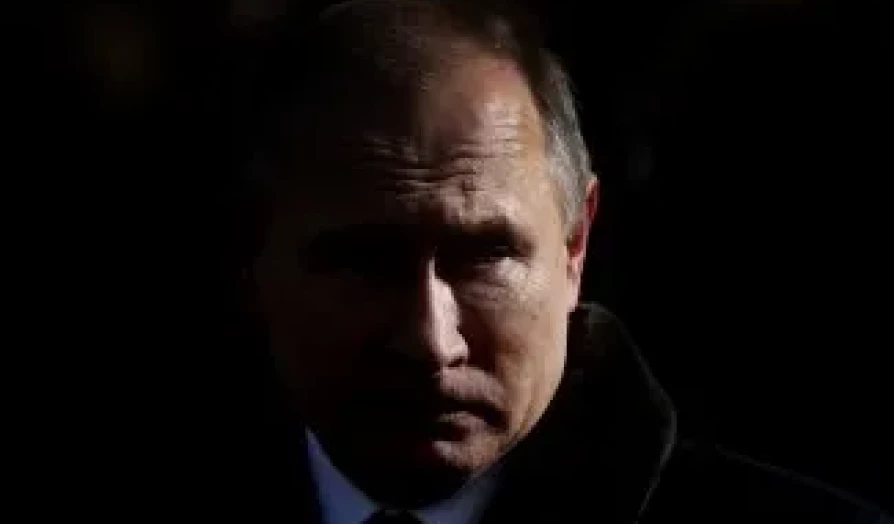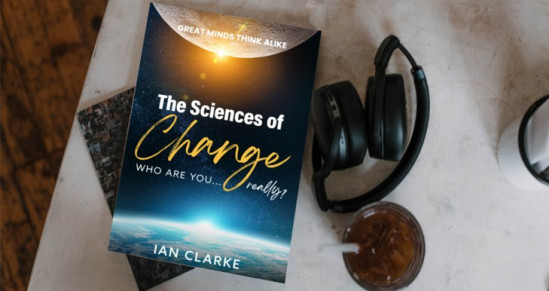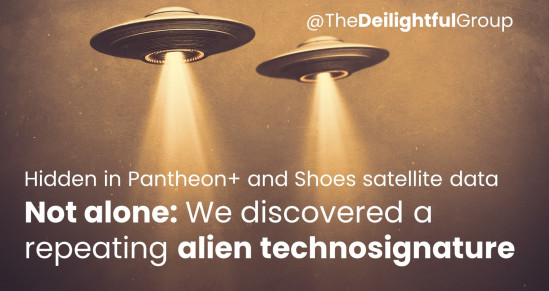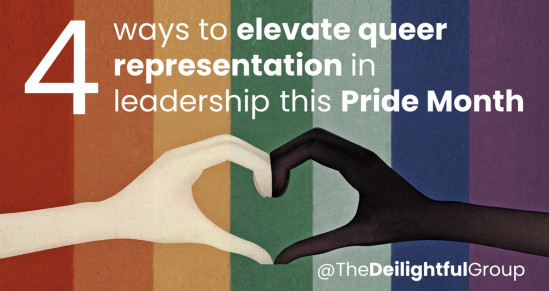Has Putin misread the will of the Russian people? | Image from Centre for Eastern Studies, Poland
"Who are we? Why are we here? What is our purpose?" These questions define the human experience, not just because they're questions we all ask ourselves but because we are the only species in the known universe with the ability to ask them ('Sapience').
Human identity and the psychology of borders
The mapping of the Human Genome in 2003 taught us a lot about what it means to be human. Specifically:
99.9% of human DNA occurs across populations all around the world, while just 1% of human beings possess DNA that is unique to their geographic region
Though humans do roughly cluster into geographical regions, the genetic variation between regions is small, but the genetic variation within regions is large.
Contrary to popular opinion, no region has a 'uniform' genetic identity, and therefore it is not possible to predict the 'race' of a human by analysing their DNA.
Effectively, science has confirmed that we are just one race - the human race - all descendants of the first modern homo sapiens that evolved in Africa around 300,000 years ago.
As humans spread out around the world, some sought to gain power through division. Specifically, they laid claim to different regions by demarking them off from fellow man, making them easier to control. Sometimes called the 'first frontier', the rise of the bounded state has over time created new sub-identities within the human race through effects such as laws, languages, refugee policies and local resources. Consider the impact of the Berlin Wall on dividing the people of Germany, and how powerfully unifying the removal of that obstacle was at undoing the division it sewed. Genetically, the people of West and East Berlin are as much the same as the people of Wales and England, India and Pakistan, or Ukraine and Russia. The only differences are chosen ('national identity').
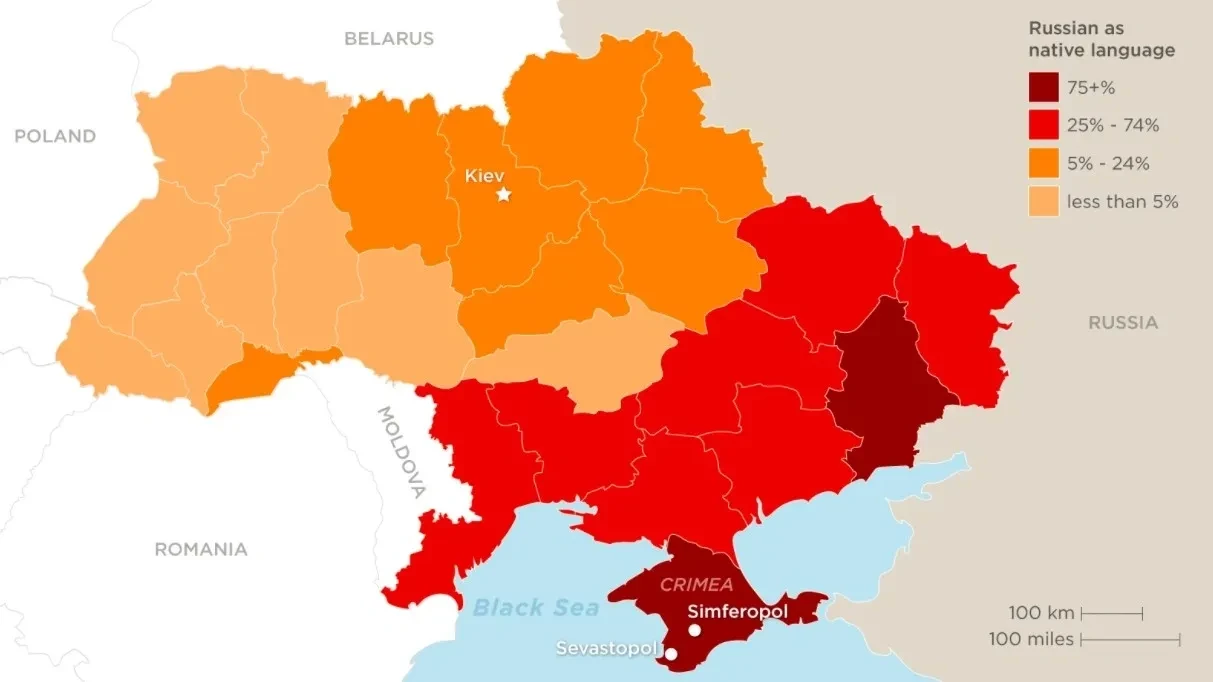
Ukraine's identity as a factor of language | CNN, 2014
President Putin's identity drives his behaviour
Much of Crimea's original population was devastated in WWII due to ethnic cleansing and forced relocations by the Soviet Union. This left a majority ethnic Russian speaking population in its place. President Vladimir Putin cited this enduring cultural mix as justification for his 2014 invasion and subsequent annexation of the peninsula. We can draw from this that language and culture, rather than borders, are more central to Putin's understanding of what it means to be Russian and therefore indicative of where he believes his power as Russia's sovereign should extend. Such a mentality would validate the majority of Southern and Eastern Ukraine as targets for annexation this time around, given the proportion of ethnic Russian populations we see there today. But Putin's going even further this time, into non-ethnic Russian areas of Ukraine. Why?
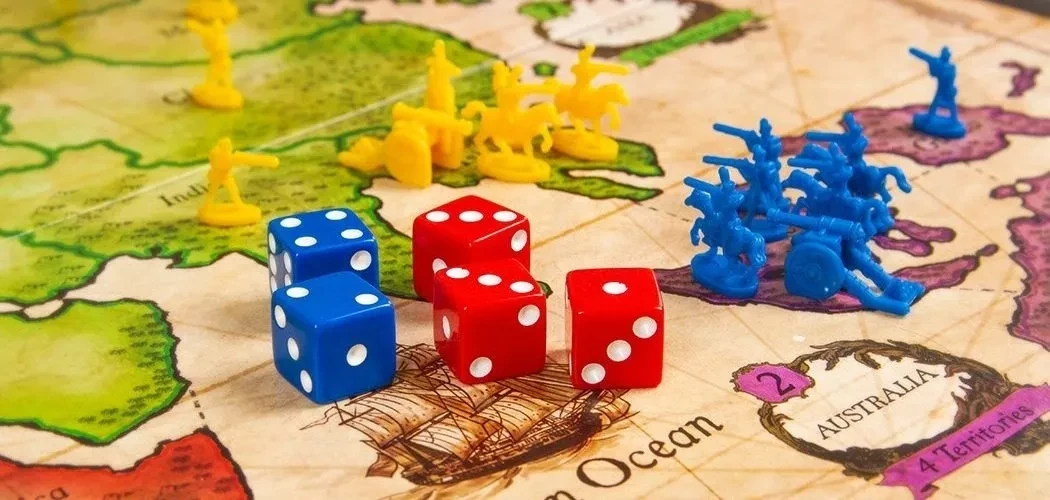
The placement of borders in our world today are hardly neutral or humanist. Rather they represent efforts by super powers to polarise populations in order to deliver strategic self-interests and advantages. With 14 countries across Eastern Europe joining NATO since 1997, including 2 with a direct land border with Russia, plus Ukraine moving ever closer politically to the bloc, Putin's clearly feeling boxed in. Imagine playing a game of Risk, but each round you have to skip your turn while others take territory.
President Putin's behaviour drives his identity
By tearing down the border between Ukraine and Russia, Putin seeks to present himself to his own people as strong man, hero and liberator - like Mikhail Gorbachev tearing down the Berlin wall and reunifying the German people. But behind the PR machine lies his true strategy. The borders he establishes over the next few years are likely to define the 'final frontier' between Russia and NATO. Under his plan, Ukraine - and Belarus too had it similarly resisted his overtures - is destined to become a failed buffer state, joining the ranks of North Korea and Afghanistan in serving only to maintain equilibrium between and preserve the national pride of two opposing major world powers.

From his increasingly bellicose rhetoric, it appears Putin no longer identifies as human, but more as Russian. Borders - the illusions of social construction that he himself ignores - are now the line in the sand representing to him which lives are important in this world and which are not. With Russia's nuclear arsenal on a high state of readiness, few checks and balances within the Russian state, plus an apparent strategy of world-wide obliteration in the event of a counter-attack, Putin today is more powerful and dangerous than any other.
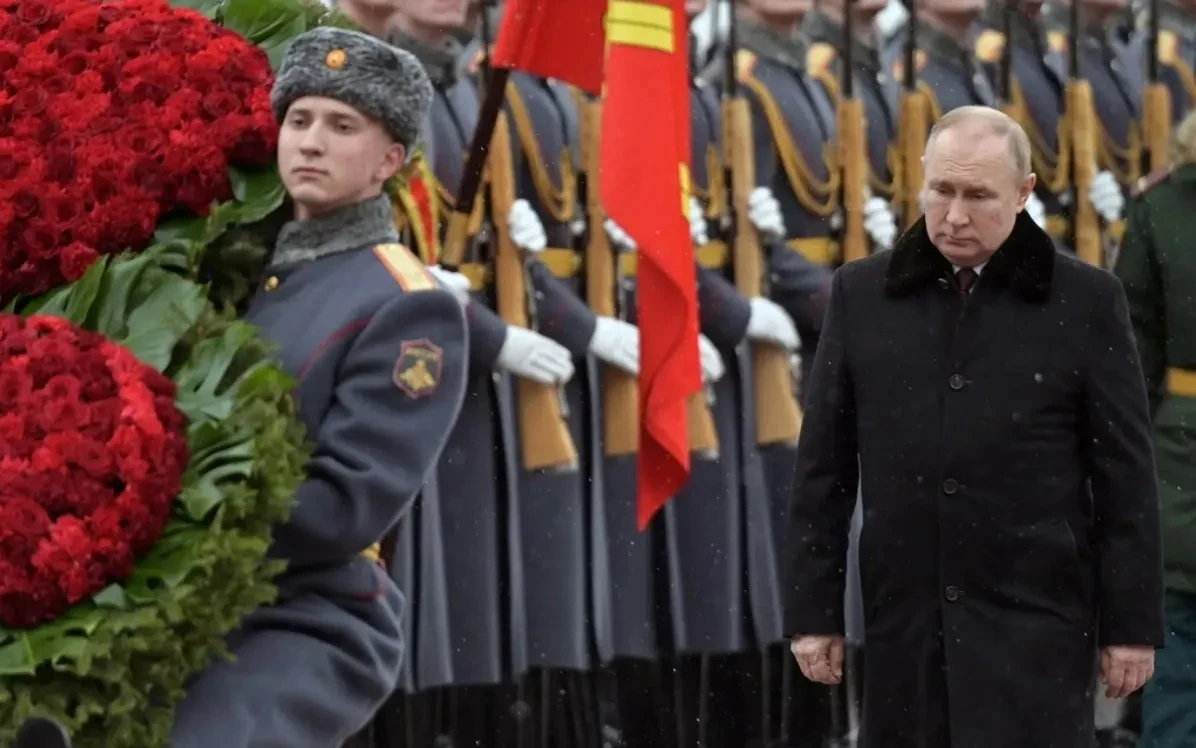
His identity as a strong man has led him down a path of aggression that in turn reinforces his identity as a stronger man - a cycle that shall fuel ever more aggressive behaviour until either his aggression or his strong man identity is tempered. President Volodymyr Zelenskyy might attempt to appeal to his humanity, however far more successful would be if the Russian people themselves - the only people he loves - speak up louder for a different path. That might be easier than it sounds. After all, Putin doesn't love all Russians - only Russians like him.
Where does this leave Ukraine?
Outnumbered and outgunned, Ukraine's defenders have confounded expectations by offering up real resistance against a mightier foe, motivated as they are to save not only their fellow citizens and successful democracy, but the very future of their nation as a functioning state. This draws parallels with the Vietnam war, where the better-equipped but politically fractious western-backed South was defeated by the smaller units of the communist North, after it successfully unified its troops under a common socio-political identity.
The war is by no means won for Ukraine but indications are rising that Russia's mightier forces may harbour trepidation as to the legitimacy of their mandate ('why are we here?'), and this may be contributing to their below par performance on the battlefield. Such is the power of human identity.
Here's a number of ways you can support the people of Ukraine:
Donate via the official Ukrainian Humanitarian Appeal coordinated by the Disasters Emergency Committee (link)
Donate directly to Ukraine via the fundraiser being coordinated by the Ukrainian Embassy (link)
Attend a demonstration such as Stand With Ukraine, taking place tonight in London's Trafalgar Square from 6pm (details)
Sign a petition to encourage the UK government to help Ukrainian refugees (Refugees Welcome | UK government to help Ukrainian refugees)
.png)
